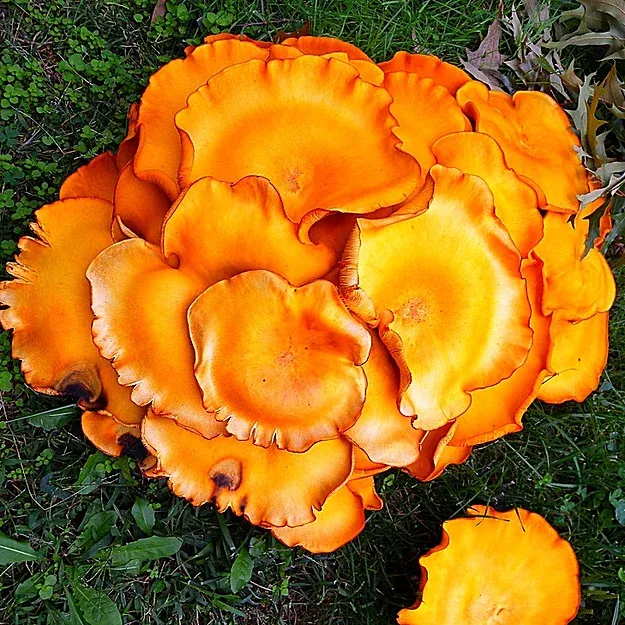Uncover the various economic Importance of fungi, including their use in the production of food and beverages like bread, beer, and cheese, as well as in agriculture, medicine, and the commercial production of enzymes and organic acids. Learn more about the many ways fungi contribute to our economy.
Introduction to Fungi
Most of us have witnessed the growth of fungi on food items left outside, rendering them unsuitable for consumption. However, it may come as a surprise to know that fungi are also essential for various processes.
Fungi are not only significant in the medical and agriculture industries, but they also have economic importance in our everyday lives. In this article, we will explore the economic importance of fungi and their role in medicine, agriculture, and other industries.

What is Fungi?
Fungi are a group of microorganisms that belong to the five-kingdom classification of living organisms. They are found almost everywhere, including in air, water, soil, and on plants and animals.
While some fungi can cause diseases in plants and animals, others have immense economic importance. Despite being known for their role in food spoilage, fungi are used in various stages of industrial processes.
A few features that set fungi apart from other microbes are :
- Possess a characteristic hypha at their tips which carry out food exploration
- They possess nucleic cells containing chromosomes
- They are heterotrophs, and cannot synthesize their own food.
- Fungi are osmotrophic – and can absorb food.
- Reproduce through spore formation(Mushrooms)
In this article, we will explore the characteristics and economic significance of fungi.
Examples of Fungi
Fungi are a diverse group of organisms found in various life cycle forms and stages. Some fungi are used for economic benefits in different fields while some cause diseases in plants and animals.
Yeast is one of the most commonly used fungi and has many food production applications. It is used in brewing beer and baking bread, which helps fermentation.
Another well-known fungus is penicillium, which is used in the production of antibiotics. It was first discovered by Alexander Fleming in 1928 and has since been used to treat various bacterial infections.
On the other hand, some fungi can be detrimental to crops and cause plant diseases. Puccinia is a type of fungi that causes wheat rust and can lead to significant crop losses. Other fungi like Fusarium and Rhizoctonia cause damping-off disease in seedlings, a significant problem in agriculture.
Mushrooms are another example of fungi that have both culinary and medicinal uses. They are used as food items in various cuisines and have many health benefits due to their high nutritional content. Some mushrooms have been found to have medicinal properties and are used in traditional medicine to treat various ailments.
In conclusion, fungi have many economic benefits in different fields and industries, including food production, medicine, and agriculture. However, some fungi can also cause harm to plants and animals, and it is essential to take measures to control their growth and spread to minimize their negative impact.
Importance of Fungi
Fungi is one of the important kingdoms of microorganisms because of its benefits.
- It is used in the agricultural industry for the enhancement of crop quality and production.
- It plays an important role in releasing different gases into the atmosphere.
- It is used in medical industries to produce different medicines.
- It is used for the production of different food items.
- It also plays an economically important role in recycling processes.
- It is also essential for different household purposes.
Role of Fungi in Medicine
▪ Fungi play an essential role in the production of medicines and are very helpful in curing various health issues. Some of the commonly used fungi include:
▪ Fungi produce metabolites that have various medical applications.
▪ Antibiotics produced by fungi are used in medicine and animal husbandry to inhibit the growth of other microbes.
▪ Penicillin and streptomycin are widely used antibiotics that kill gram-positive and gram-negative bacteria.

▪ Yield-soluble antibiotics are used to treat plant diseases and check the growth of yeasts and bacteria.
▪ Griseofulvin is used to treat fungal skin diseases by absorbing into keratinized tissues.
▪ Ergot is used in medicine and the veterinary industry to control bleeding post-childbirth and is a derivative of which is used in psychiatry.
▪ Clavatia fungi consumption is known to prevent stomach cancer.
▪ Micafungin is used as an antifungal agent, and Mycophenolate is used to prevent tissue rejection.
▪ Rosuvastatin is a fungus that has found uses in reducing cholesterol.
▪ Aspergillus niger is used for the synthesis of different steroids.
Role of Fungi in Agriculture
Fungi also find uses in various agricultural activities and plays an important role in the following:
- Fungal activity plays a vital role in crop productivity, contributing up to 70% to the growth of plants.
- Fungi are essential for the formation of humus by breaking down plant and animal matter.
- Fungal pesticides are used in biological pest control, reducing environmental hazards.
- Certain species of fungi are used in agricultural research to detect elements in soil and produce enzymes.
- Mycorrhizal fungi, which form a symbiotic relationship with plant roots, enhance farmland productivity.
- Fungi decompose organic matter in the soil, increasing its nutritional quality.
- They also decrease nitrogen in the soil by converting it into plant protein.
- Fungi form a symbiotic relationship with plants to provide essential minerals, such as phosphorus, through mycorrhizae.
- Fungi produce bioactive metabolites that improve plant growth.
- Important fungi in agriculture include Fusarium, Chaetomium, Chytridium, Penicillium, and Aspergillus.
Importance of Fungi in Agriculture
Fungi are important for agriculture and they are responsible for
- Decomposition of organic matter in the soil.
- Release of oxygen, nitrogen, carbon, and phosphorus in the soil.
- Production of different enzymes in soil.
- Enhancement of plant growth.
- Prevent plants from different pathogens.
Economic Importance of Fungi
Fungi have various economic benefits beyond medicinal and agricultural uses. Here are some of the significant ones:
- Edible fungi such as mushrooms provide essential nutrients like vitamins, amino acids, and lipids.
- Yeast, the most common fungi, is used in the production of bread and beer.
- Trichoderma spp., free-living fungi, is present in the root ecosystem and acts against plant pathogens, making it valuable in crop protection.
- Certain species of fungi, such as Penicillium, are used to produce different types of cheese, including Roquefort and Camembert.
- Fungi are used in commercialising various enzymes and organic acids, making them important in the biotechnology industry.
Economically Important Fungal Organisms
Some common economically important fungi are
- Yeast
- Penicillium
- Mushroom
- Moulds
- Rusts
- Truffles
- Boletes
- Smuts
- Puffballs
Interesting Facts about Fungi
▪ Fungi can be found almost everywhere on Earth, from the ocean’s depths to the tops of mountains.
▪ Fungi can communicate with each other through chemical signals, allowing them to coordinate their behaviour and respond to their environment.
▪ Some fungi are bioluminescent, meaning they can produce light, such as the Jack-O’-Lantern mushroom.

▪ Fungi are important ecosystem decomposers, breaking down dead organic matter and returning nutrients to the soil.
▪ The largest living organism on Earth is a fungus called Armillaria ostoyae, which covers an area of over 2,200 acres in Oregon’s Malheur National Forest.
▪ The oldest known fossilized fungus is over 1 billion years old, predating the appearance of plants on land.
▪ Fungi have been used for thousands of years in traditional medicine, including Chinese and Ayurvedic medicine.
▪ The hallucinogenic effects of certain fungi, such as Psilocybe mushrooms, have been used in religious and spiritual ceremonies for centuries.
▪ Some species of fungi can change gender throughout their lifetime, depending on environmental conditions.
▪ The first antibiotic, penicillin, was discovered from a fungus by Alexander Fleming in 1928.
▪ Fungi are a kingdom but they resemble more animals than plants
▪ Fungi have the capability to break down plastic waste.
Key Features of the Economic Importance of Fungi
▪ Fungi are microorganisms that belong to the kingdom of Fungi, including yeast and moulds.
▪ Fungi have various applications in medical industries, as penicillin is made from the fungi Penicillium.
▪ Fungi are also important in agriculture, as they contribute to the enhancement of crop quality and soil nutrients.
▪ Certain species of fungi help improve plant growth, such as through the symbiotic relationship with plant roots known as mycorrhiza.
▪ Fungi have several economical uses, including the production of bread, beer, cheese, enzymes, and organic acids.
▪ Edible fungi such as mushrooms are a source of essential nutrients like vitamins, amino acids, and lipids.
▪ Fungi play an important role in the food industry, as they are used in the production of various food products, including mushrooms.
▪ Some fungi, such as Trichoderma sps., act as natural plant protectants against pathogens.
▪ Fungi are also used to commercialise different enzymes and organic acids.
▪ Common examples of fungi include yeast, penicillium, and mushroom.
Frequently Asked Questions (FAQs)
Ans: The common important applications of fungi are-
• Food Industry
• Used in Medicines
• Used in Agriculture
Ans: The antibiotic penicillin is produced from the fungi penicillium
Ans: Some of the economically important fungi are-
Yeast
Penicillium
Mushroom
Moulds
Rusts

